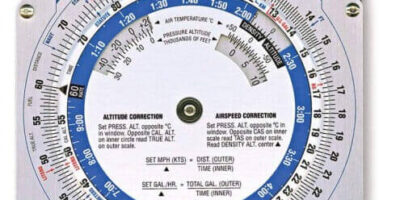NetJets Pay Scale
Understanding the NetJets Pay Scale
NetJets, a well-known private aviation company, operates a fleet of aircraft available for fractional ownership, lease, and charter. This firm’s compensation structure for its pilots and staff can be a bit complex, but it’s designed to be competitive and rewarding.
NetJets Pilots: Compensation Overview
Pilots at NetJets are divided primarily into two categories: Captains and First Officers. Each category has its own pay scale, which generally increases with the length of service. NetJets pilots also receive various benefits that add substantial value to their overall compensation.
Starting Salaries
- First Officers: $58,500 – $95,000 annually
- Captains: $97,000 – $178,000 annually
Pay Progression
First Officers start on a lower pay scale but receive incremental raises each year. Captains, being more senior, start at a higher base salary, and their pay also increases with tenure. Here’s a simplified progression:
- First Year: A First Officer might start at around $60,000, while a Captain might start at $100,000.
- Fifth Year: By the fifth year, a First Officer’s pay could rise to approximately $85,000, and a Captain’s pay might reach $150,000.
- Tenth Year: Tenured First Officers might earn up to $110,000, while Captains might be making close to $180,000.
Hourly Rates
NetJets pilots are typically guaranteed a minimum number of flying hours annually. For 2023, the figures are 200 hours for First Officers and 300 hours for Captains. The hourly rates for flying time also reflect the pilot’s experience and tenure.
- First Officers: $103 – $165 per hour
- Captains: $175 – $305 per hour
Additional Compensation Elements
NetJets pilots enjoy a variety of compensation beyond their salaries and hourly flying rates. These benefits include:
Bonuses
- Sign-On Bonuses: New hires might receive bonuses ranging from $5,000 to $10,000.
- Retention Bonuses: Long-term employees may receive periodic bonuses to encourage retention.
- Performance Bonuses: Annual or semi-annual bonuses based on individual and company performance.
Benefits
- Health Insurance: Comprehensive medical, dental, and vision coverage.
- Retirement Plans: Contribution options to 401(k) plans with company match.
- Paid Time Off: Generous vacation and sick leave policies.
- Travel Benefits: Discounted rates on travel and lodging.
- Professional Development: Opportunities for ongoing training and career advancement.
NetJets Navigator Program
The NetJets Navigator Program is designed for pilots who aspire to earn more and move up the ranks. It offers a clear path for First Officers to become Captains. Key components include:
- Mentorship: Senior pilots mentor junior pilots, providing guidance and sharing knowledge.
- Training: Access to in-house training programs and simulators.
- Flight Hours: Support to acquire the necessary flight hours for advancement.
Comparing NetJets with Industry Standards
When comparing NetJets pay scales with the industry, it’s evident that the company offers competitive compensation. Unlike many commercial airlines, NetJets provides more stable work schedules and better work-life balance. This stability and quality of life are significant factors for many pilots. Additionally, NetJets’ benefits package is among the best in the private aviation sector.
NetJets Maintenance and Ground Staff Salaries
Maintenance and ground staff play a crucial role in ensuring that NetJets’ operations run smoothly. Their compensation structure is also tiered based on experience and job role.
Technicians and Engineers
- Entry-Level: $45,000 – $60,000 annually
- Mid-Level: $60,000 – $80,000 annually
- Senior-Level: $80,000 – $110,000 annually
Ground Operations
Ground operations staff, including dispatchers and flight planners, also have a structured pay system:
- Entry-Level: $40,000 – $55,000 annually
- Mid-Level: $55,000 – $70,000 annually
- Senior-Level: $70,000 – $90,000 annually
Factors Influencing Pay
Several factors influence the exact pay rates at NetJets. These include overall market conditions, company performance, and changes in the aviation industry. Additionally, individual performance and contribution to the company can affect bonuses and promotions.
How to Increase Earnings Potential
Pilots and staff can increase their earnings potential through several strategies:
- Pursue Additional Certifications: Higher qualifications can lead to better opportunities.
- Take on More Responsibility: Leadership roles or specialized tasks can boost earnings.
- Participate in Training Programs: Continuous professional development can open up higher-paying positions.
